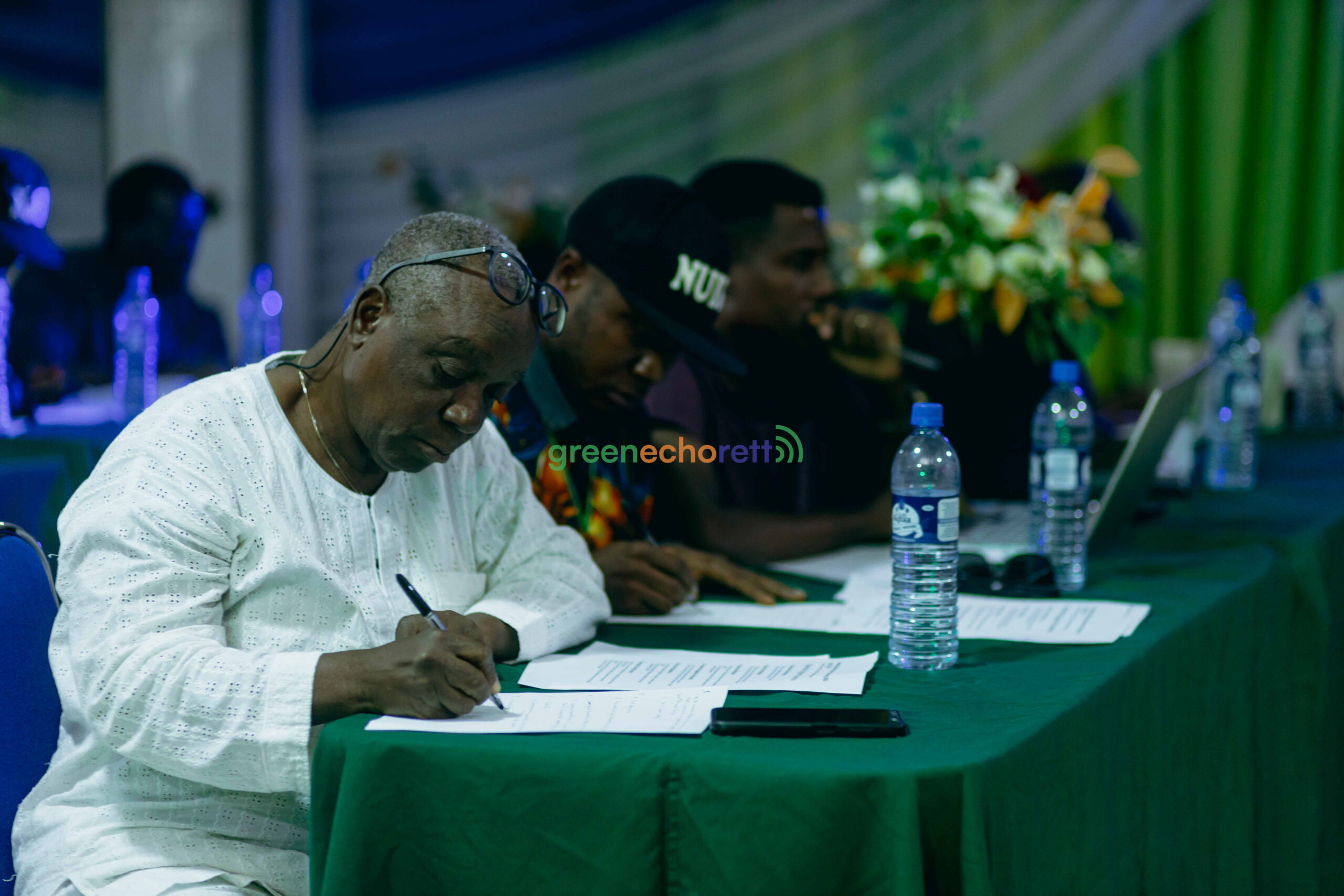
Powering the Future: Highlights from the Anambra Energy Transition Convening
Date: 26th September, 2025
Venue: Best Western Meloch Hotel, Awka, Anambra State
Organiser: Green Echo Renewable Energy Transition Team (RETT)
Theme: Climate Entrepreneurship & the Socio-Economic Future of Anambra
A Milestone for Anambra’s Energy Future
The Anambra Energy Transition Convening brought together voices from government, business, civil society, and academia to chart pathways for a cleaner, more resilient, and inclusive energy future for the state.
The event spotlighted Anambra’s progress since passing the Electricity Law (2025) and underscored the dual role of renewable energy and natural gas in Nigeria’s Energy Transition Plan. Participants examined both barriers and opportunities facing entrepreneurs and innovators — from financing hurdles and counterfeit products to the vast untapped potential of solar, CNG, and distributed energy systems.
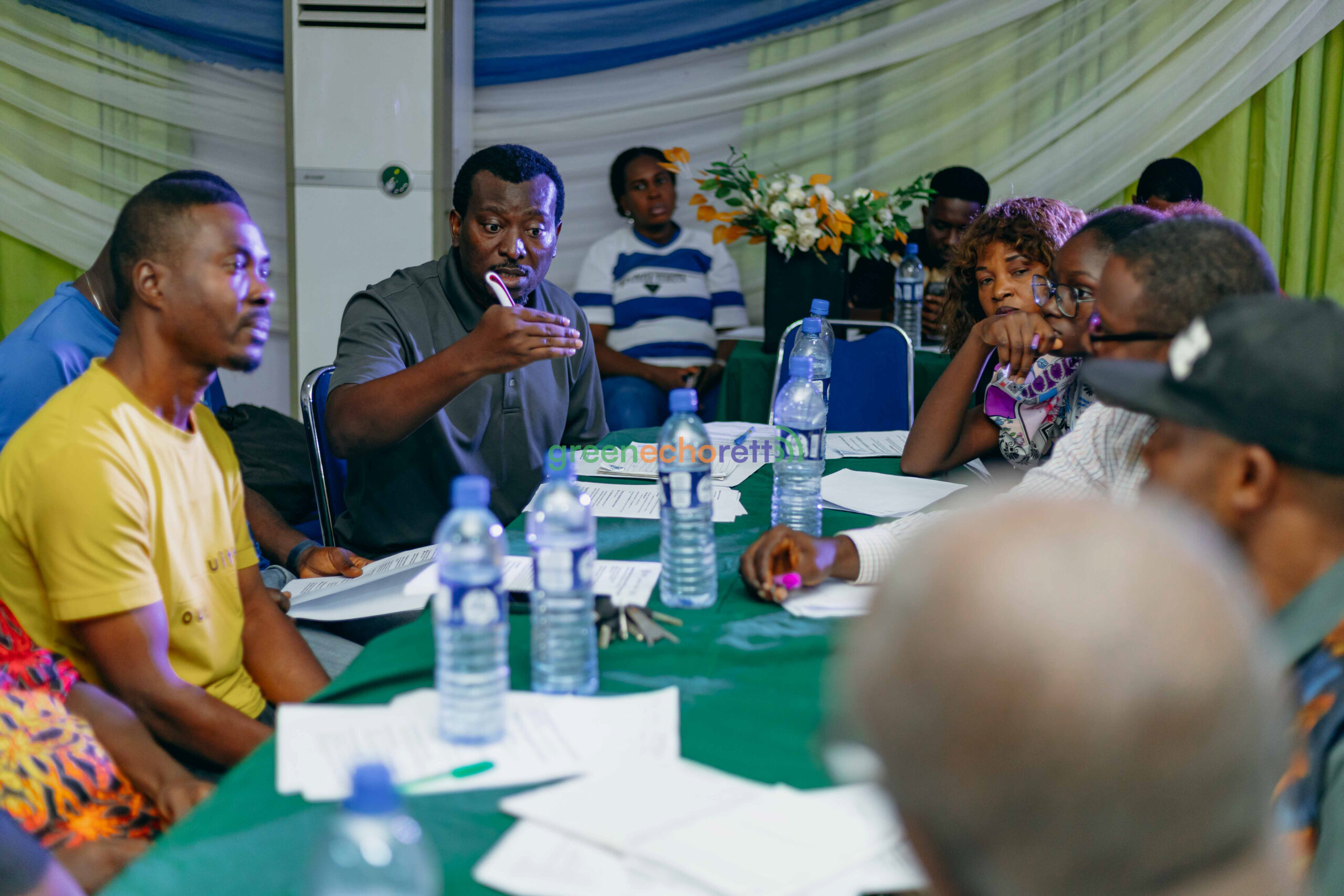
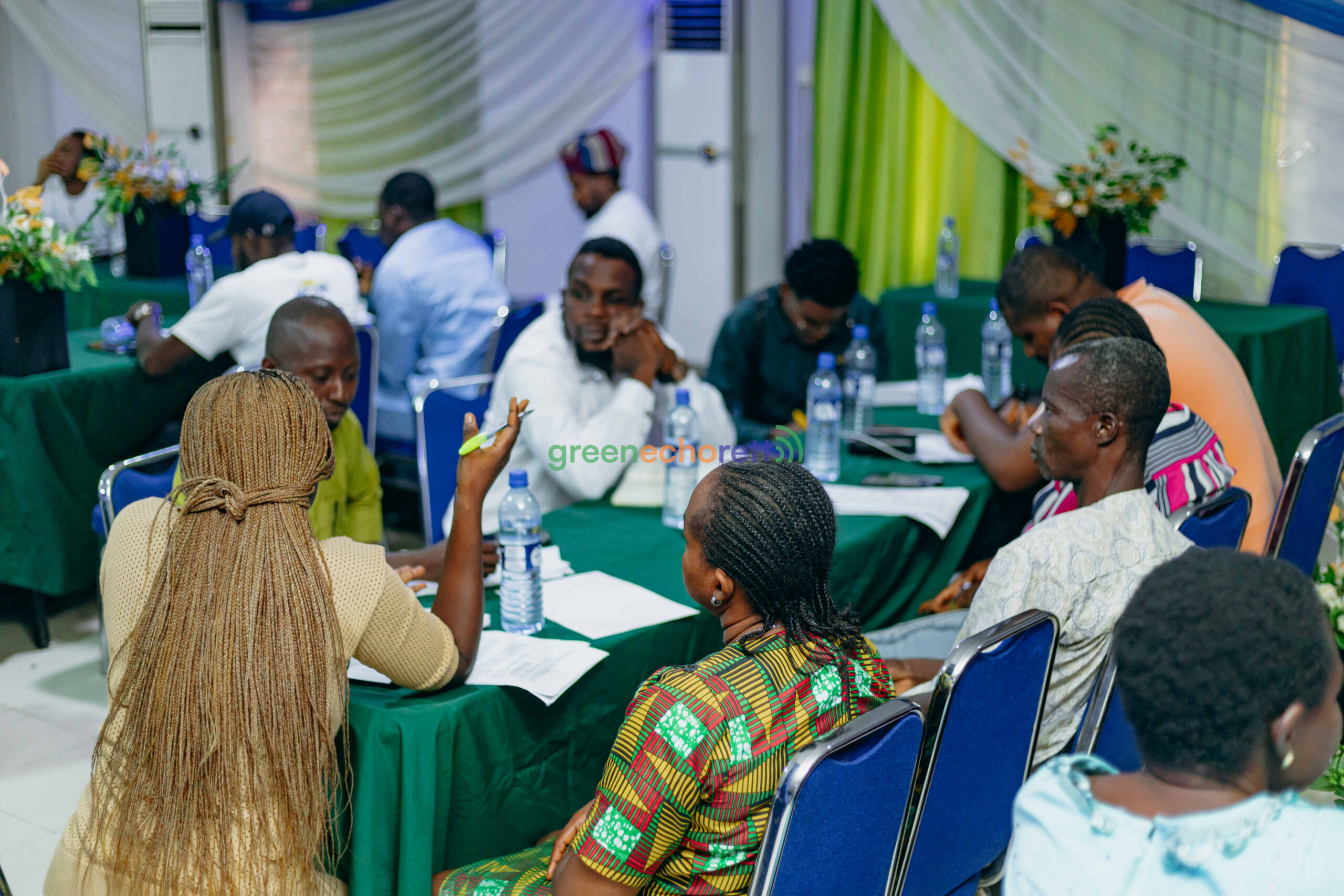
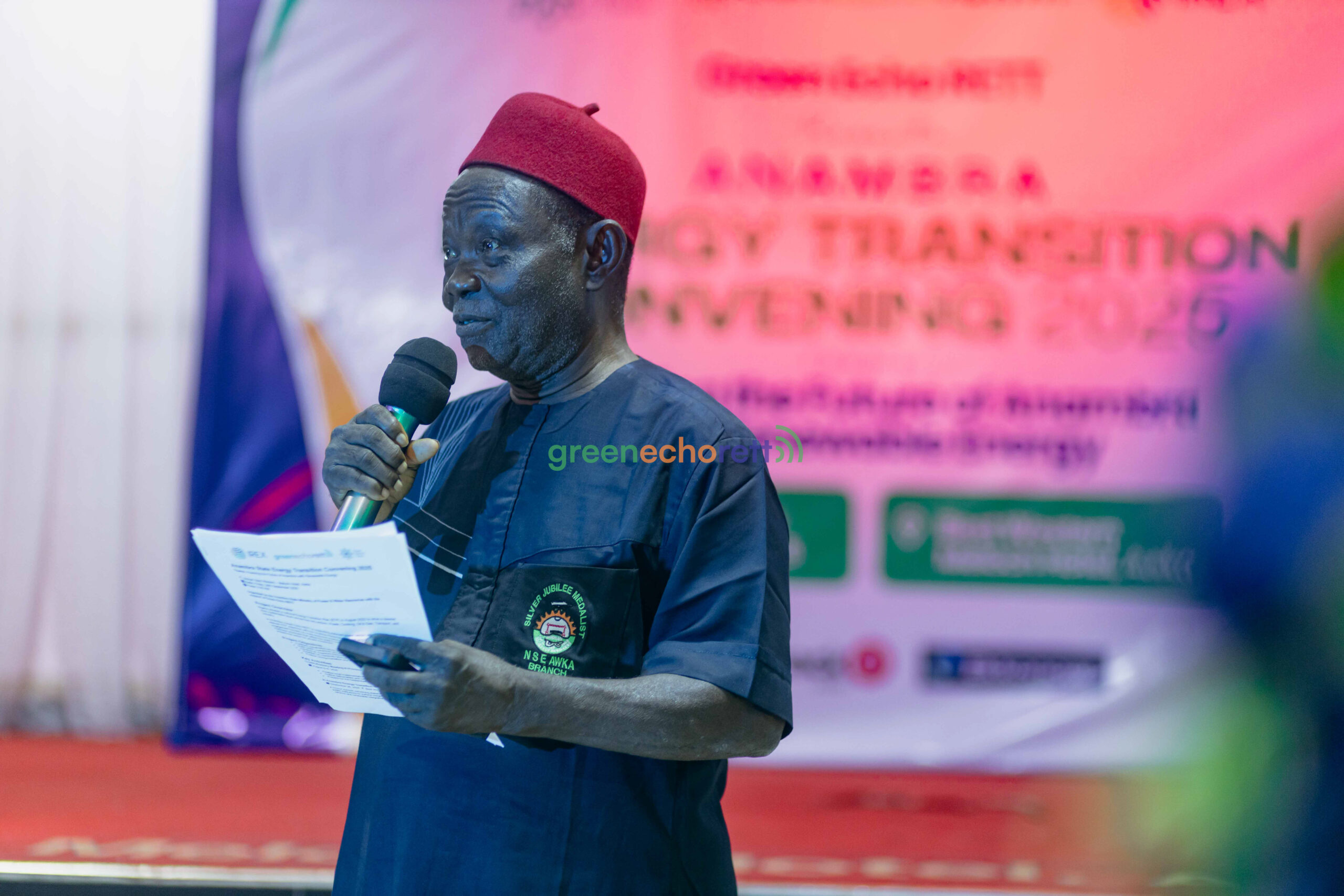
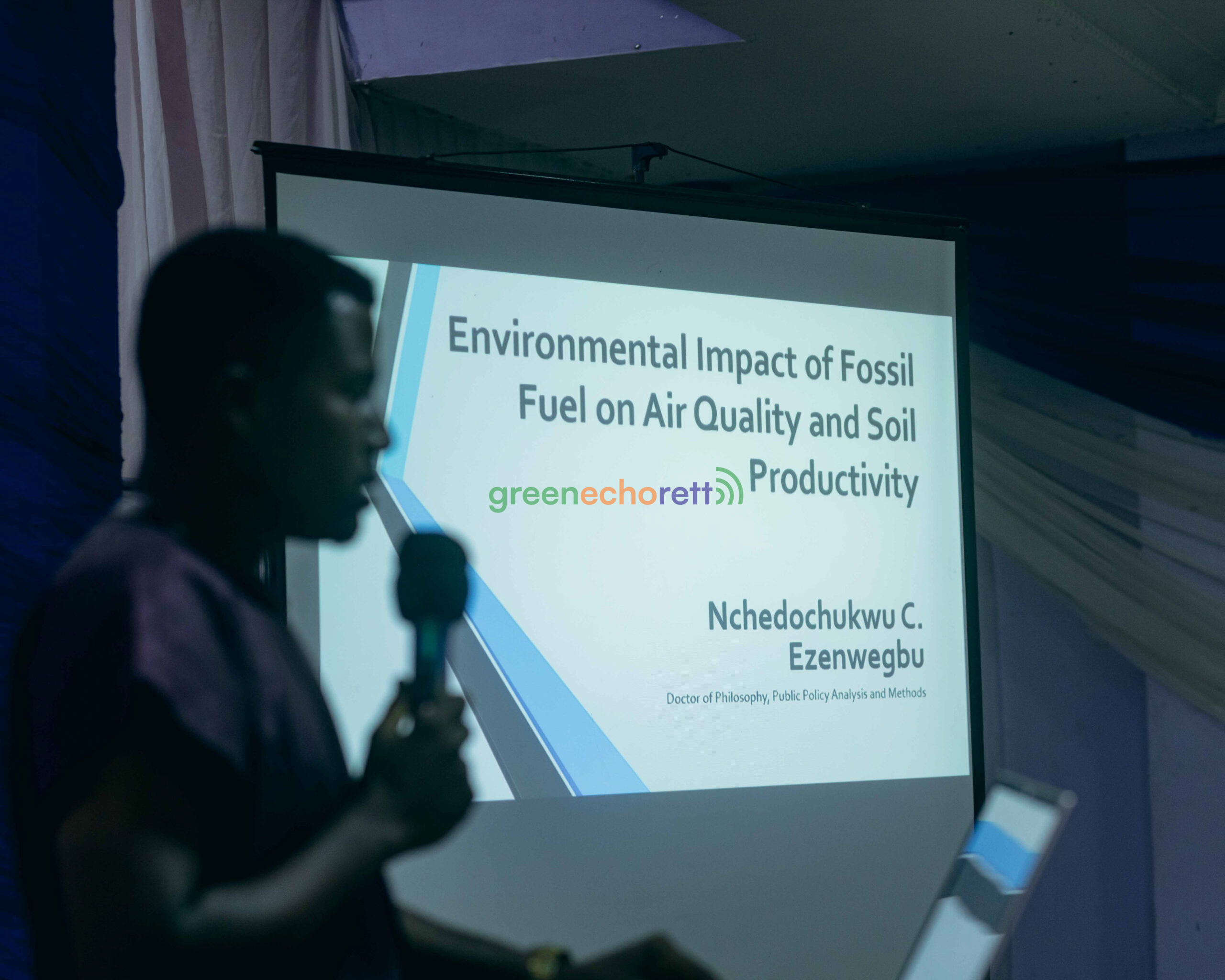
Opening the Conversation
Guests began arriving from 10:00 a.m., and by 10:30 the program was underway with the National Anthem and an opening prayer.
- Mr. David Effiong, Project Coordinator for Green Echo RETT (Anambra), welcomed participants and encouraged active engagement.
- Mr. Nwike Nweke introduced distinguished guests, including Engr. Ike (SA to the Governor on Petroleum), representatives of Fradro Gas & Power Ltd., and the Electronic Development Institute (ELDI).
- Mr. Patrick Ndifon presented a fact sheet on Where Anambra Stands Now, outlining achievements under the state’s new electricity law and its renewable energy provisions.
- Mr. Chibuzor Agomuoh, Project Manager, gave the welcome address, stressing RETT’s mission to support sub-national energy transition through an implementation roadmap and a scorecard.
Learning Through Facilitation
Two facilitation sessions set the tone for deeper discussions:
1. Using Dialogue and Communication for Effective Advocacy
Led by Engr. Onuorah Chukwuemeka, this session emphasized the power of framing and dialogue in energy transition advocacy. Key takeaways included:
- Frame transition as an upgrade, not a downgrade.
- Use dialogue, not debate, to build consensus.
- Tailor messages for different audiences.
- Engage communities directly to build trust.
2. Environmental Impact of Fossil Fuels on Air and Soil
Facilitated by Dr. Nchedochukwu C. Ezenwegbu, the session explored the “silent threat” of fossil fuels on health, agriculture, and the economy. Participants called for:
- Stricter emissions enforcement,
- Proper waste oil management systems,
- Public education and grassroots awareness campaigns.
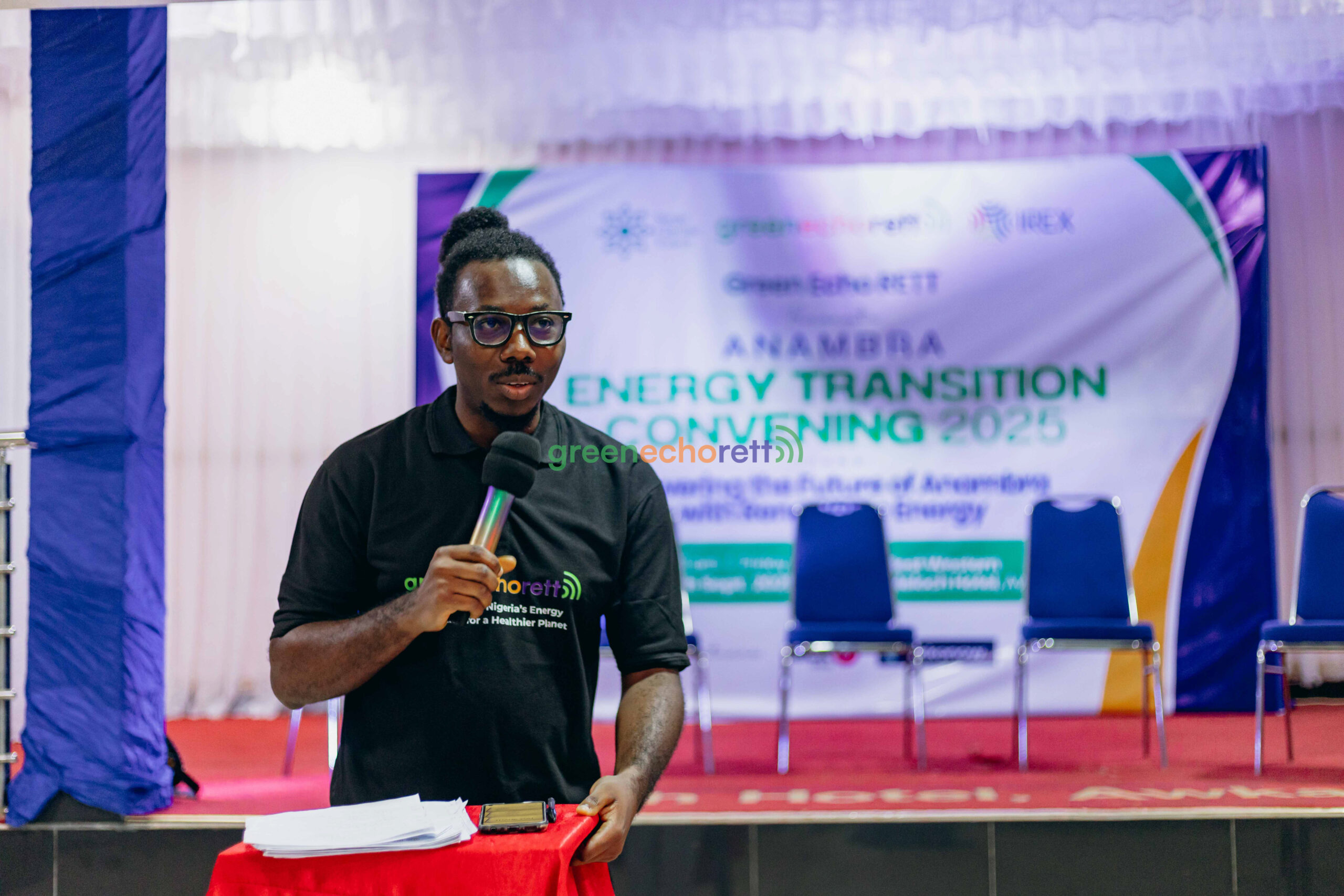
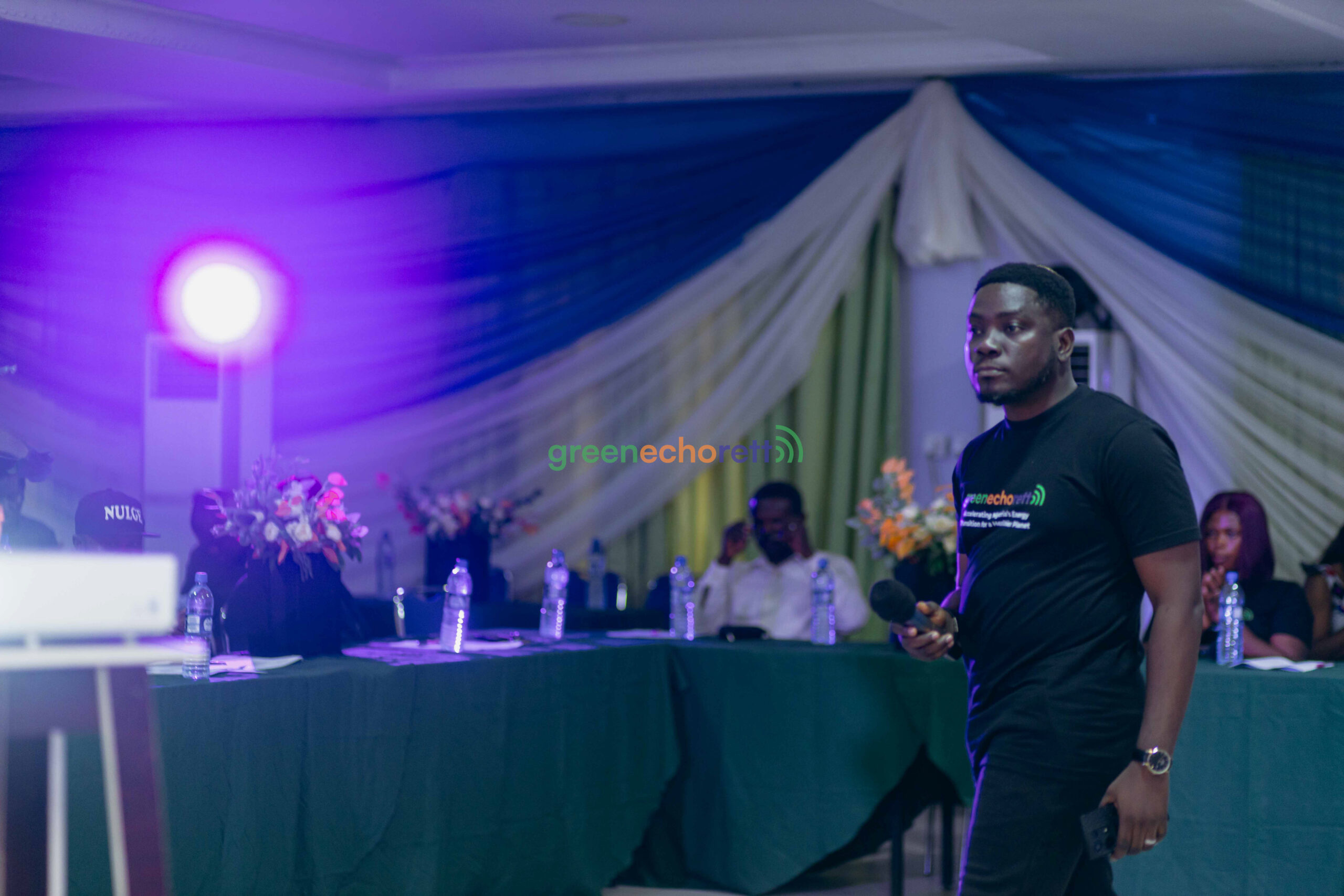
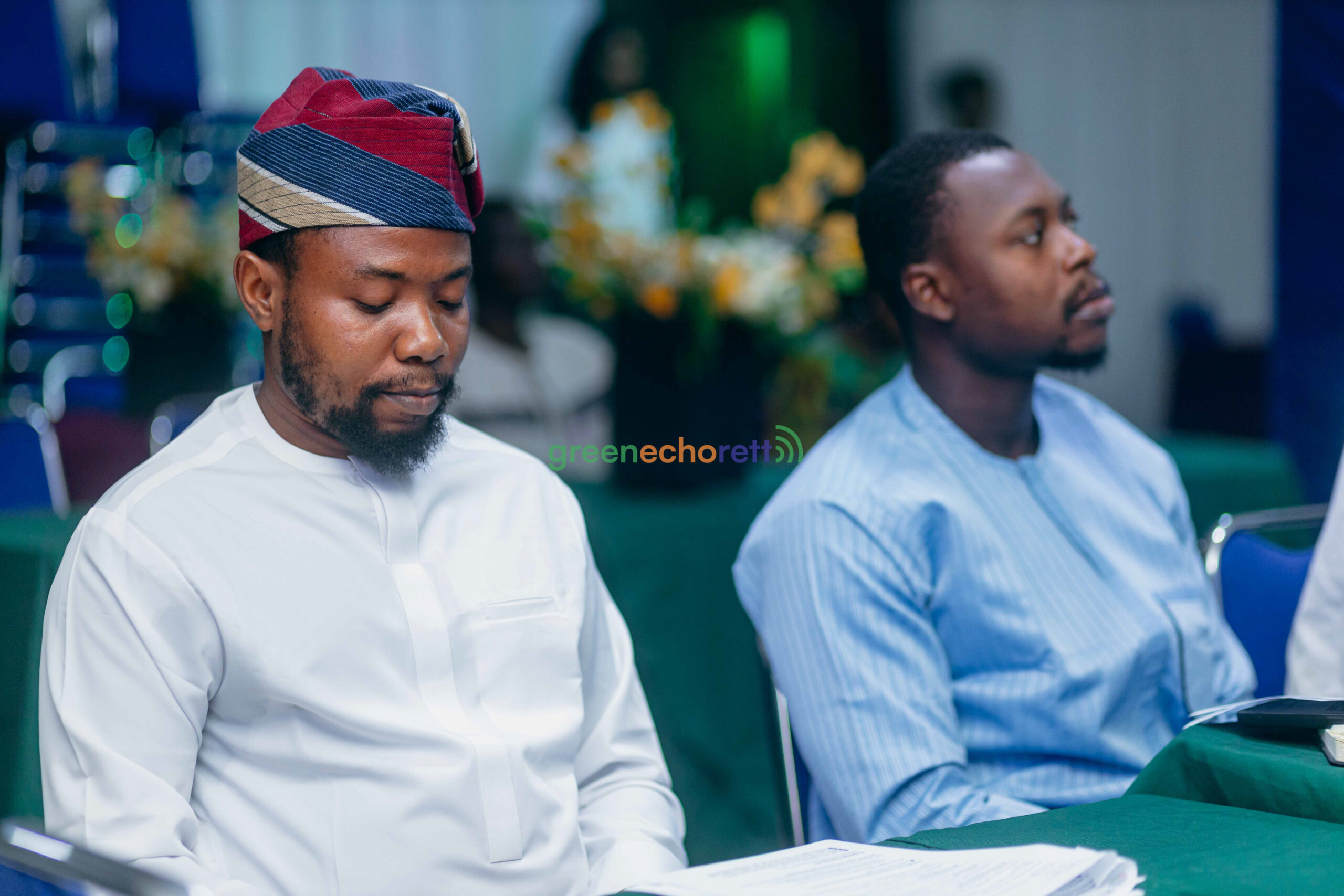

The Panel: Climate Entrepreneurship & Anambra’s Energy Future
A panel featuring Engr. Akubueze Chikwado (Varkzell Solar Tech), Mr. Godwin Ugo Okoye (OGM Solar & Smart Technology Ltd), Barr. Abiola Falusi (Fradro Gas & Power Ltd), and Engr. Oladapo Olatoye (ELDI) brought the discussion to life.
Highlights included:
- Rising fuel costs are hurting businesses and households — renewables offer relief.
- Entrepreneurs face barriers like financing bottlenecks and counterfeit products.
- Research and development remain underfunded.
- A wholesale switch is unrealistic, making natural gas a vital bridge fuel for Anambra.
- Both solar and CNG present huge opportunities for job creation and economic growth.
Voices from the Convening
In vox pop interviews, participants shared their reflections:
- Engr. Ikechukwu Okafor (SA to the Governor on Petroleum): “It’s not just about talk talk, it’s about doing it, following it through, and seeing it to the end.”
- Mrs. Somto Akujirōbi (3MTT State Coordinator): called for community-owned solar projects to improve affordability and sustainability.
- Barr. Abiola Falusi (Fradro Gas & Power): stressed the role of CNG as a cleaner bridge fuel alongside solar and hydropower.
- Engr. Akubueze Chikwado (Varkzell Solar): “The future is bright… brighter than the sun.”
- Program Manager, Green Echo RETT: highlighted the convening’s success as the diversity of voices in the room.
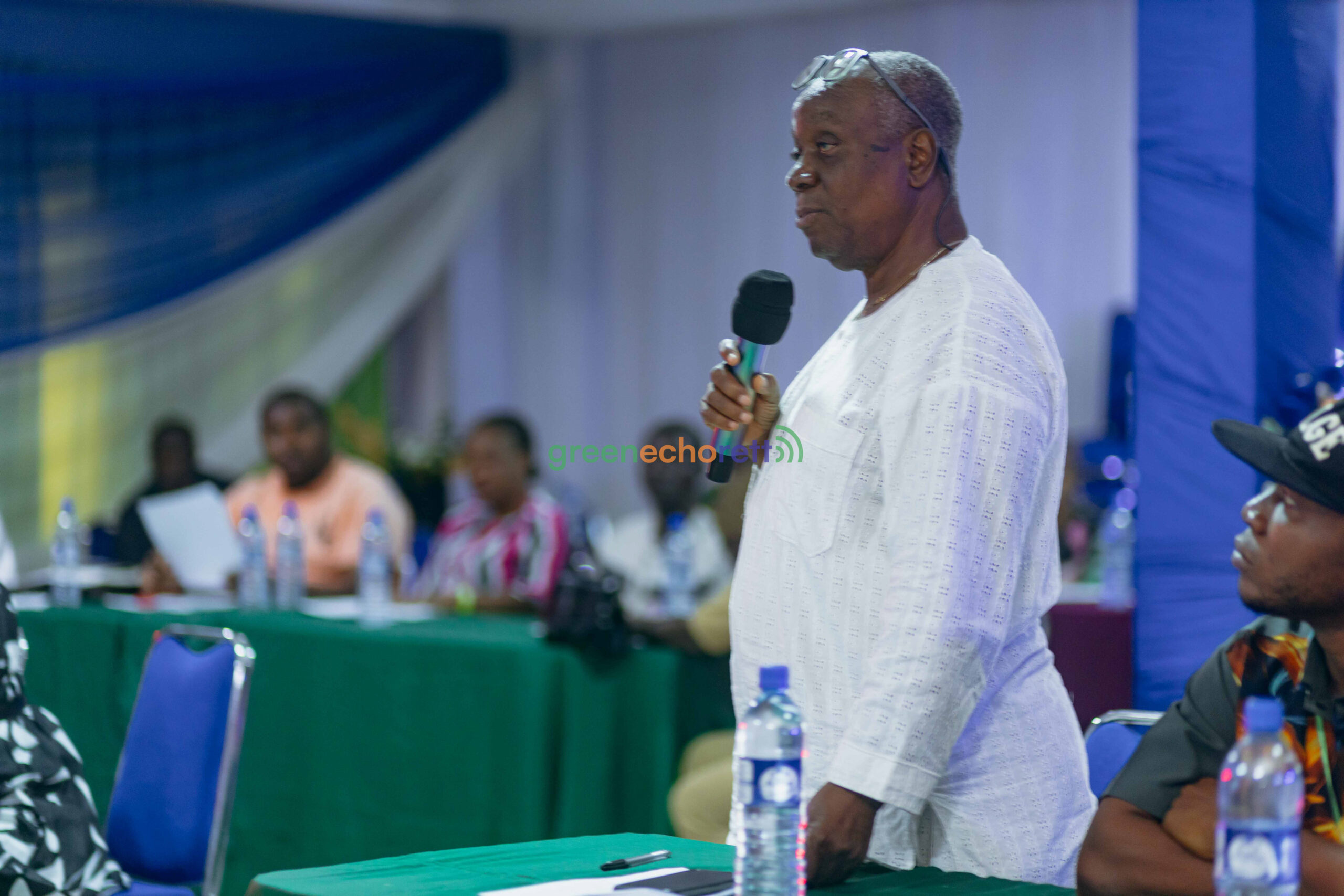
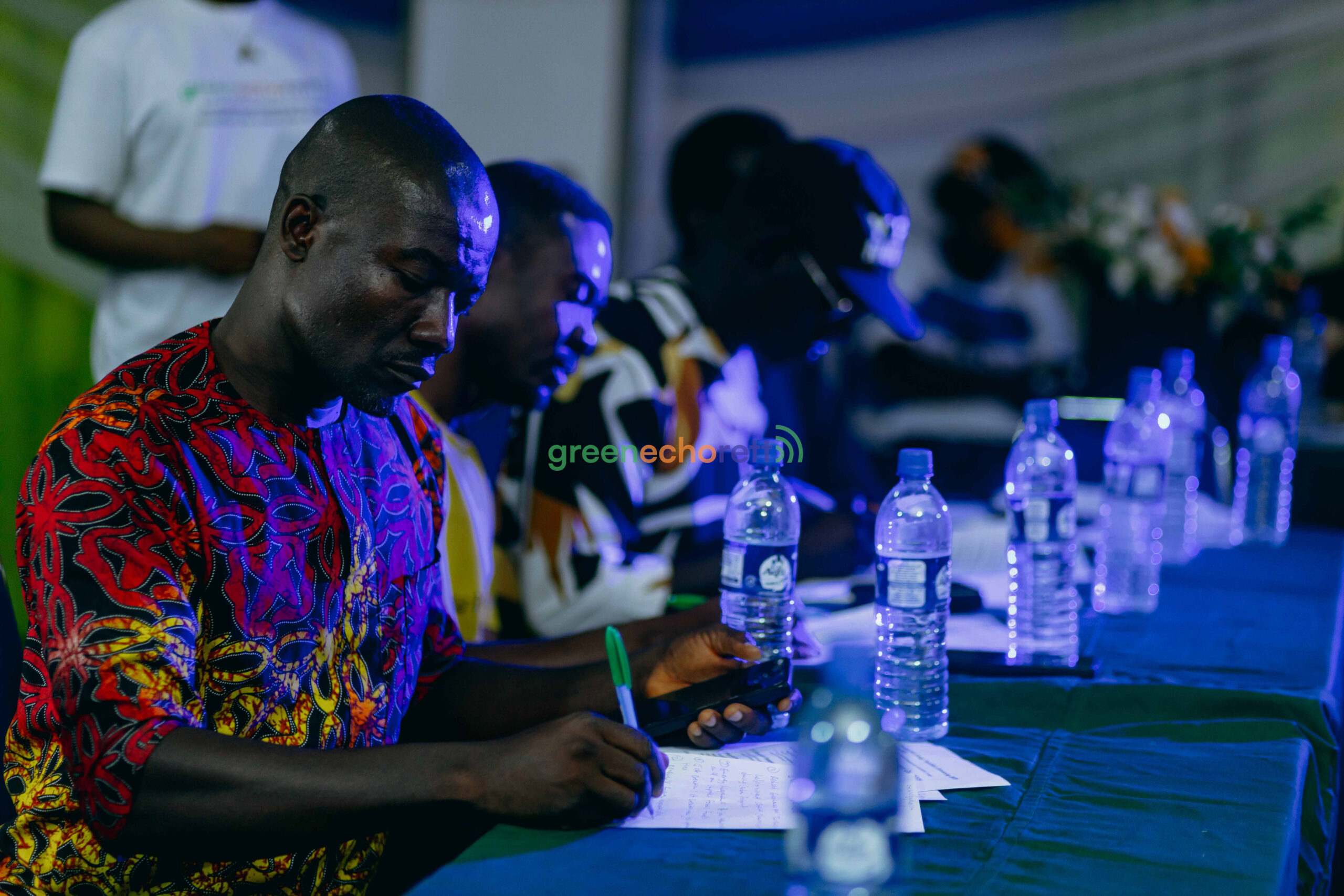
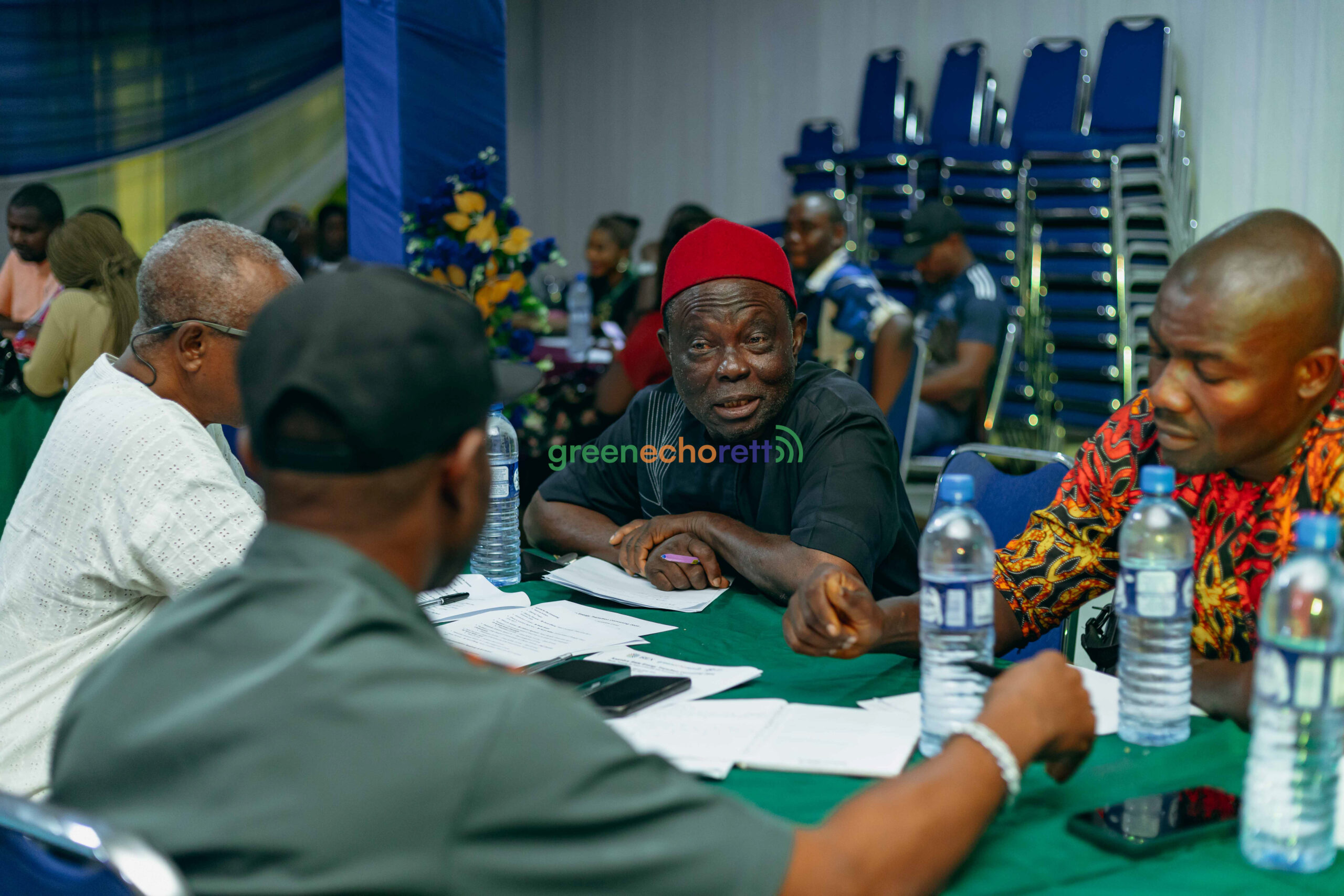
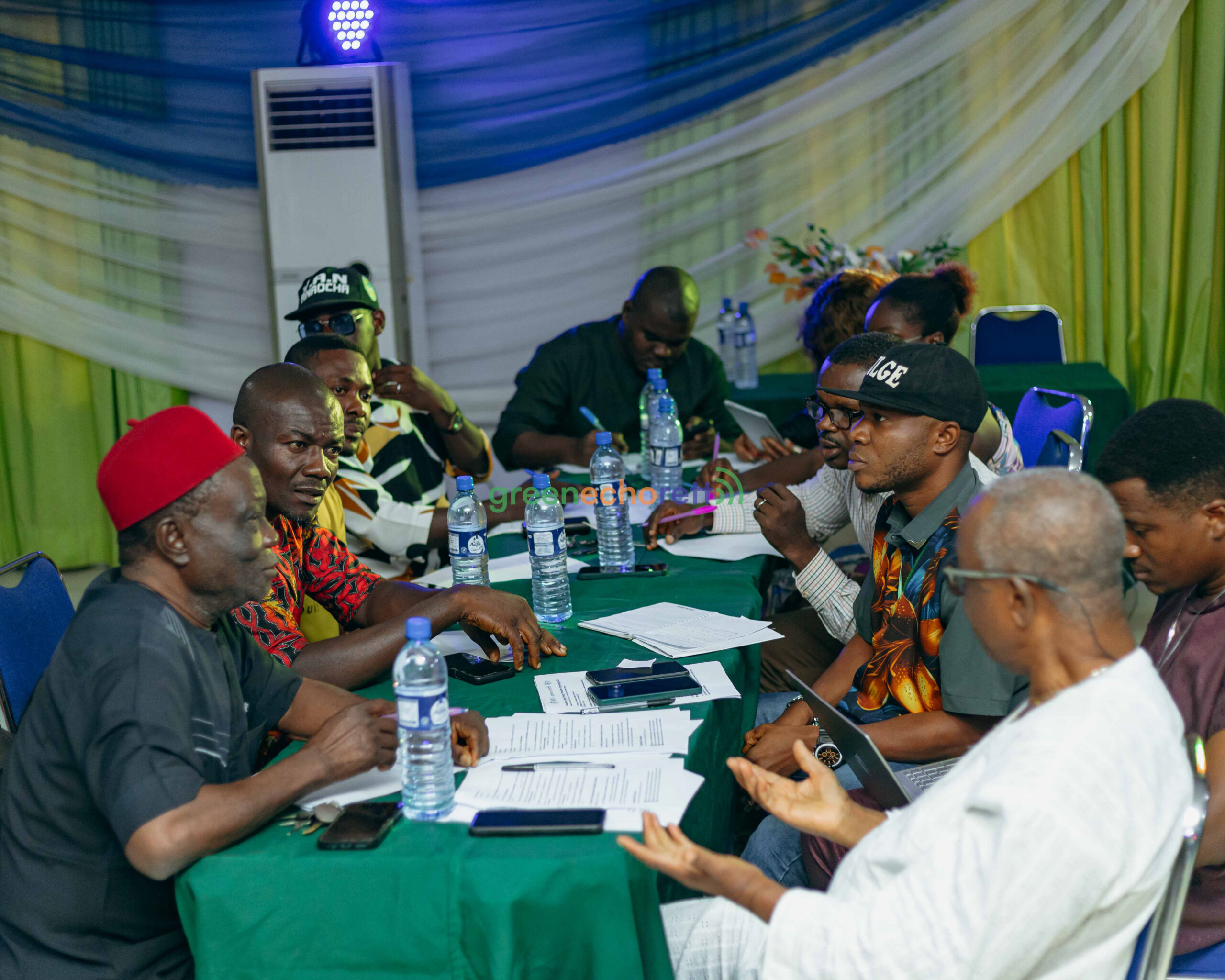
Key Outcomes
- Recognition that renewables are critical for health, environment, and affordability.
- Broad agreement that natural gas is a transition fuel in line with Nigeria’s Energy Transition Plan.
- Financing, counterfeit products, and weak R&D funding remain barriers.
- Opportunities lie in solar, CNG, mini-grids, and distributed energy resources.
- A roadmap and scorecard are needed to track progress and attract investment.
The Way Forward
Participants recommended:
- Developing an Anambra Energy Transition Roadmap (2025–2026).
- Launching a Quarterly Scorecard for accountability.
- Strengthening R&D, certification, and anti-counterfeit measures.
- Expanding public awareness campaigns on clean energy.
- Building public-private-academic partnerships to sustain momentum.
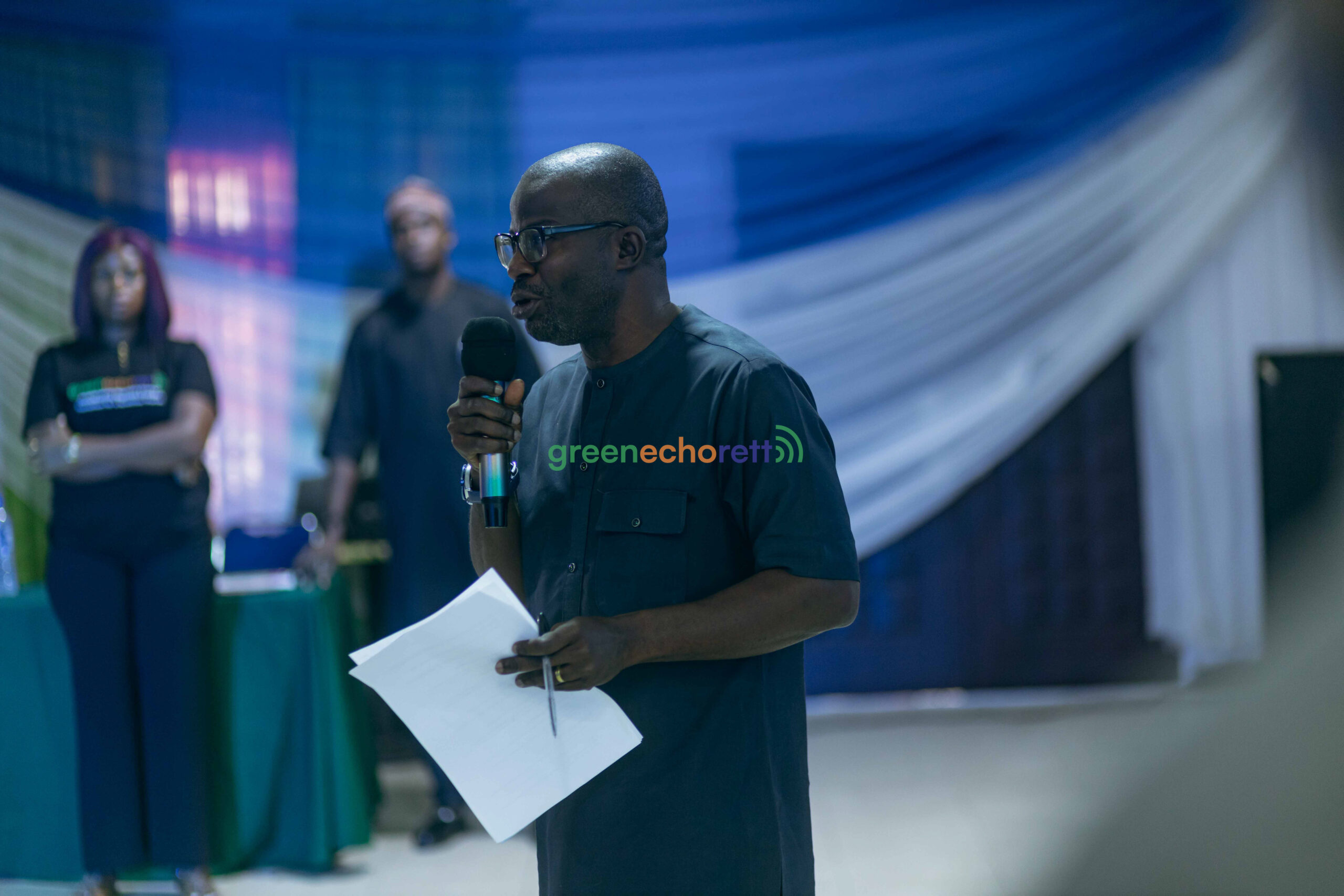
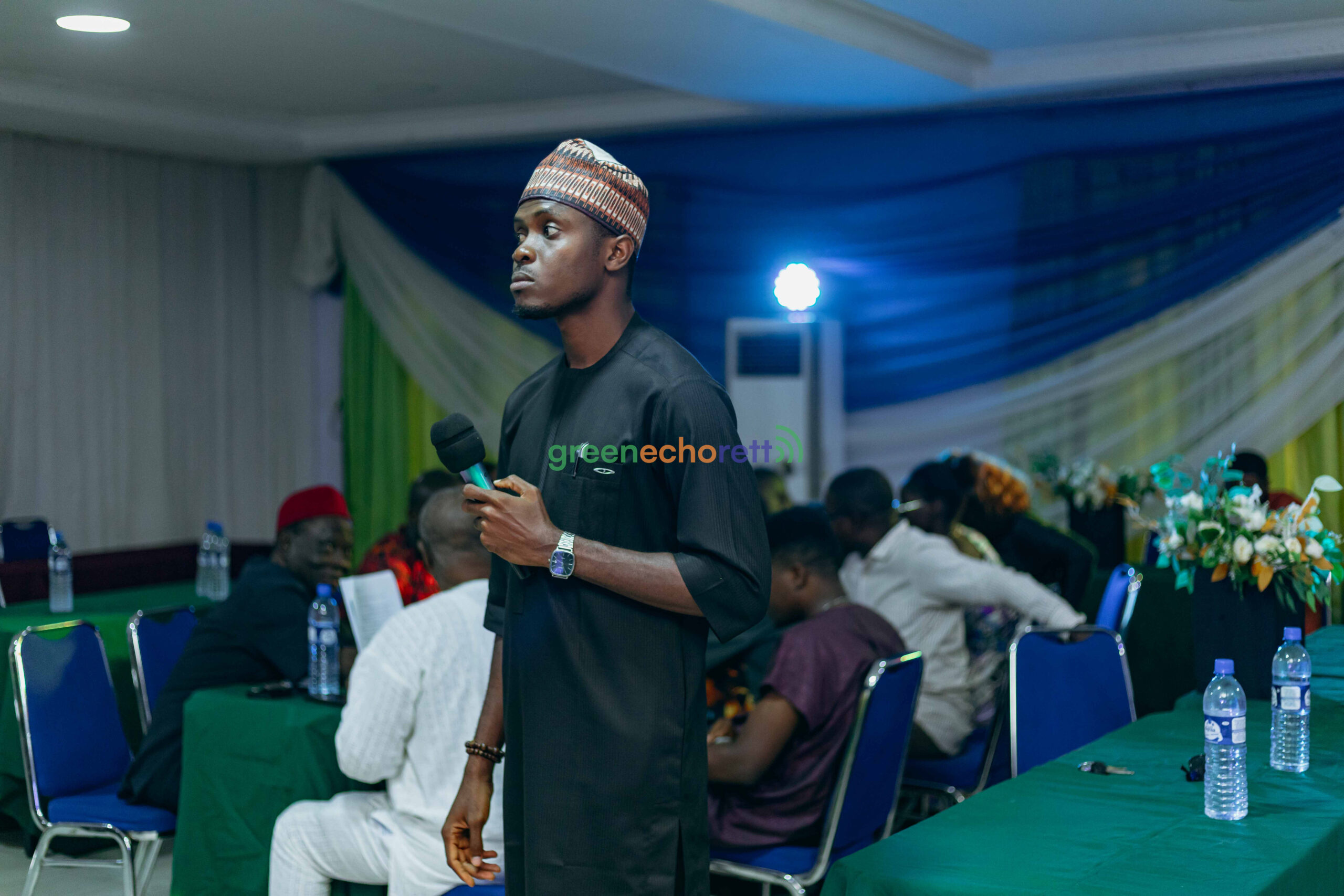
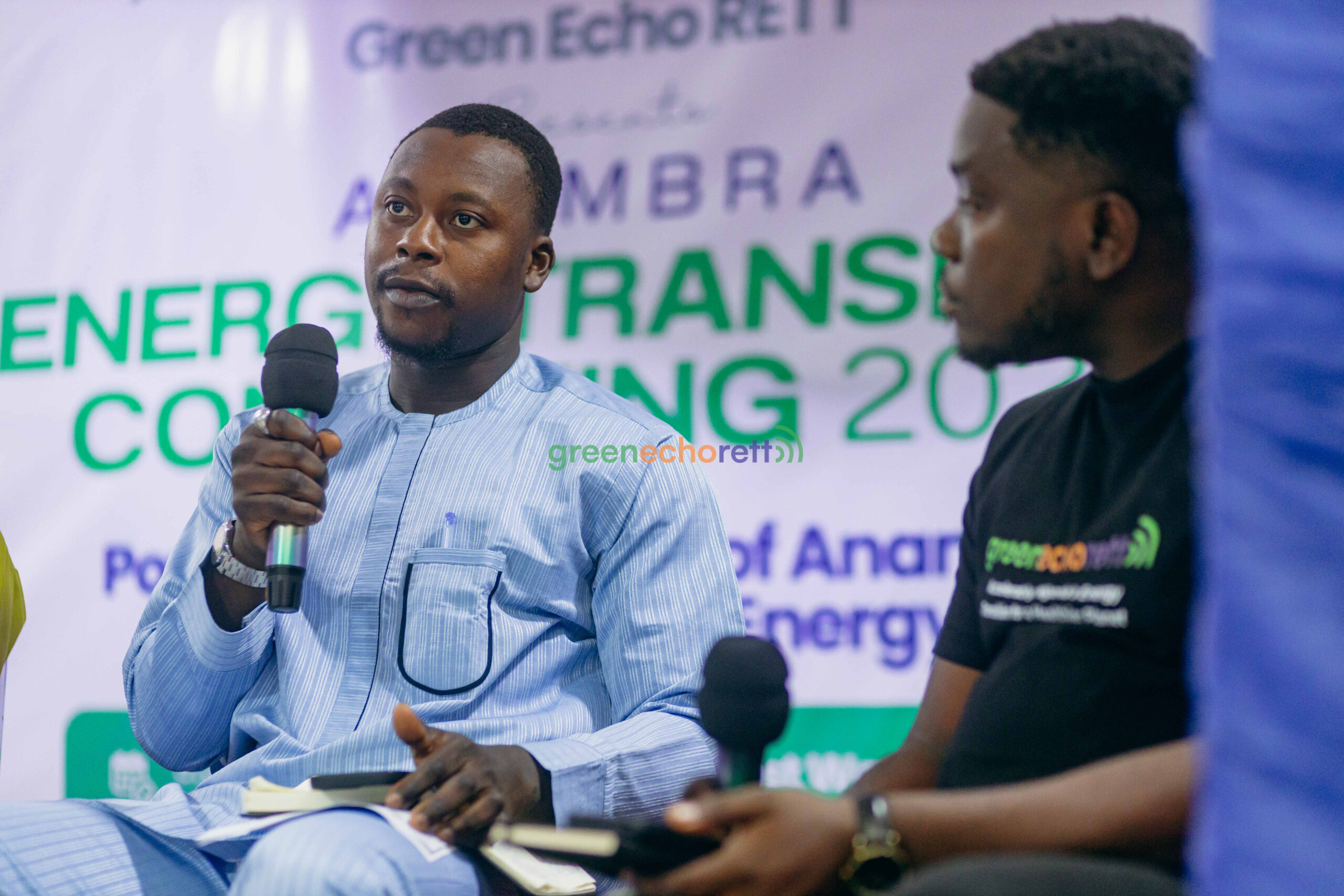
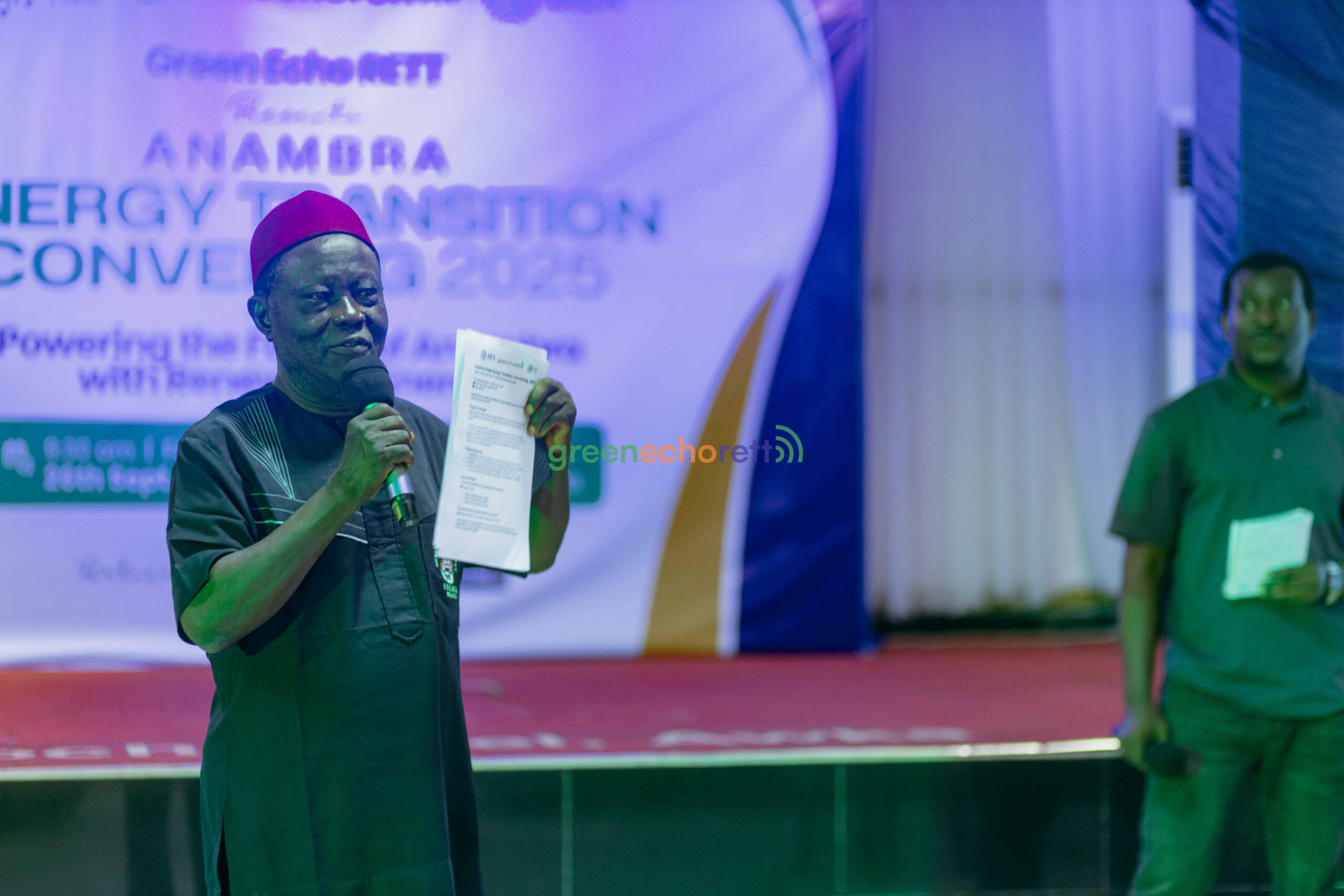
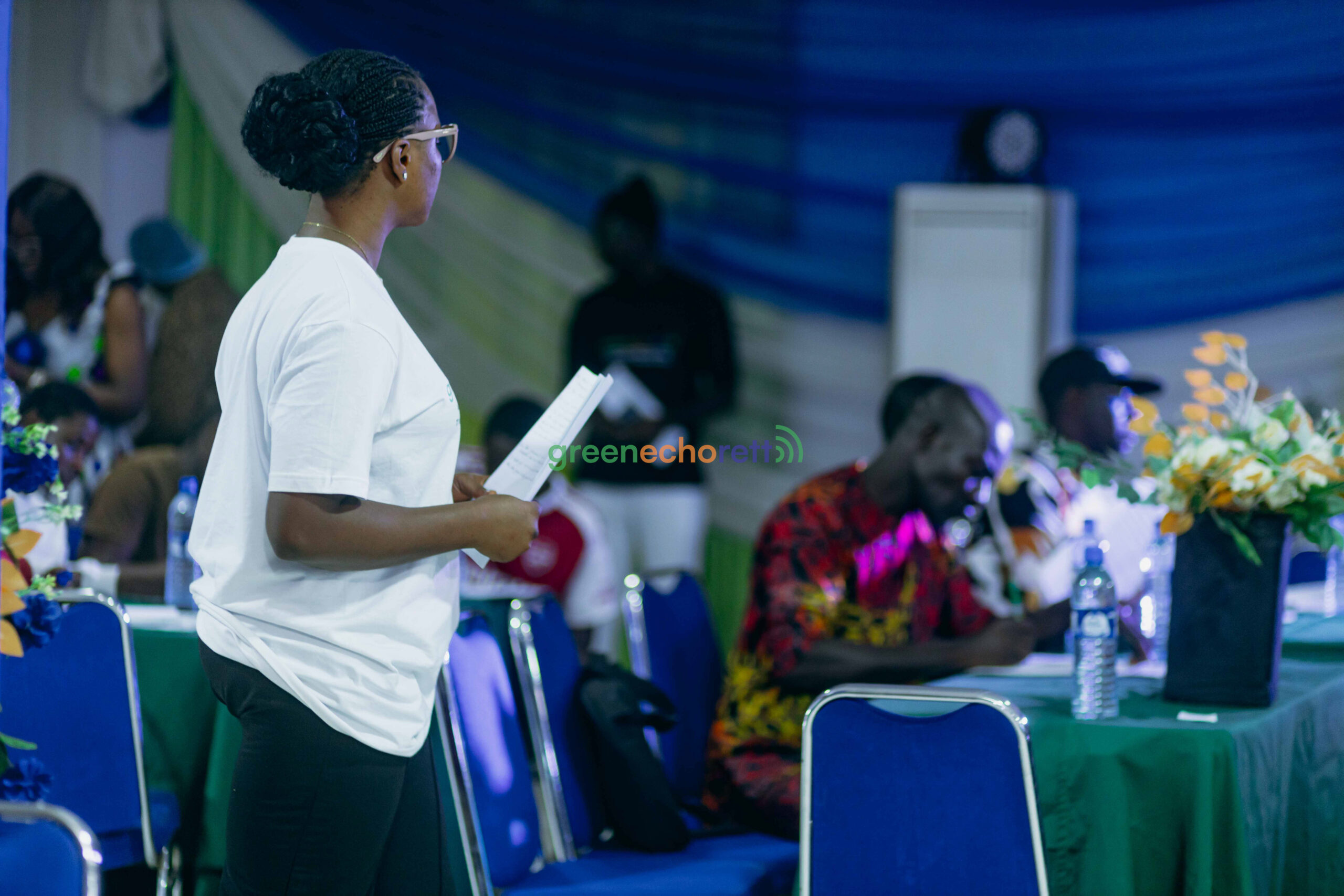
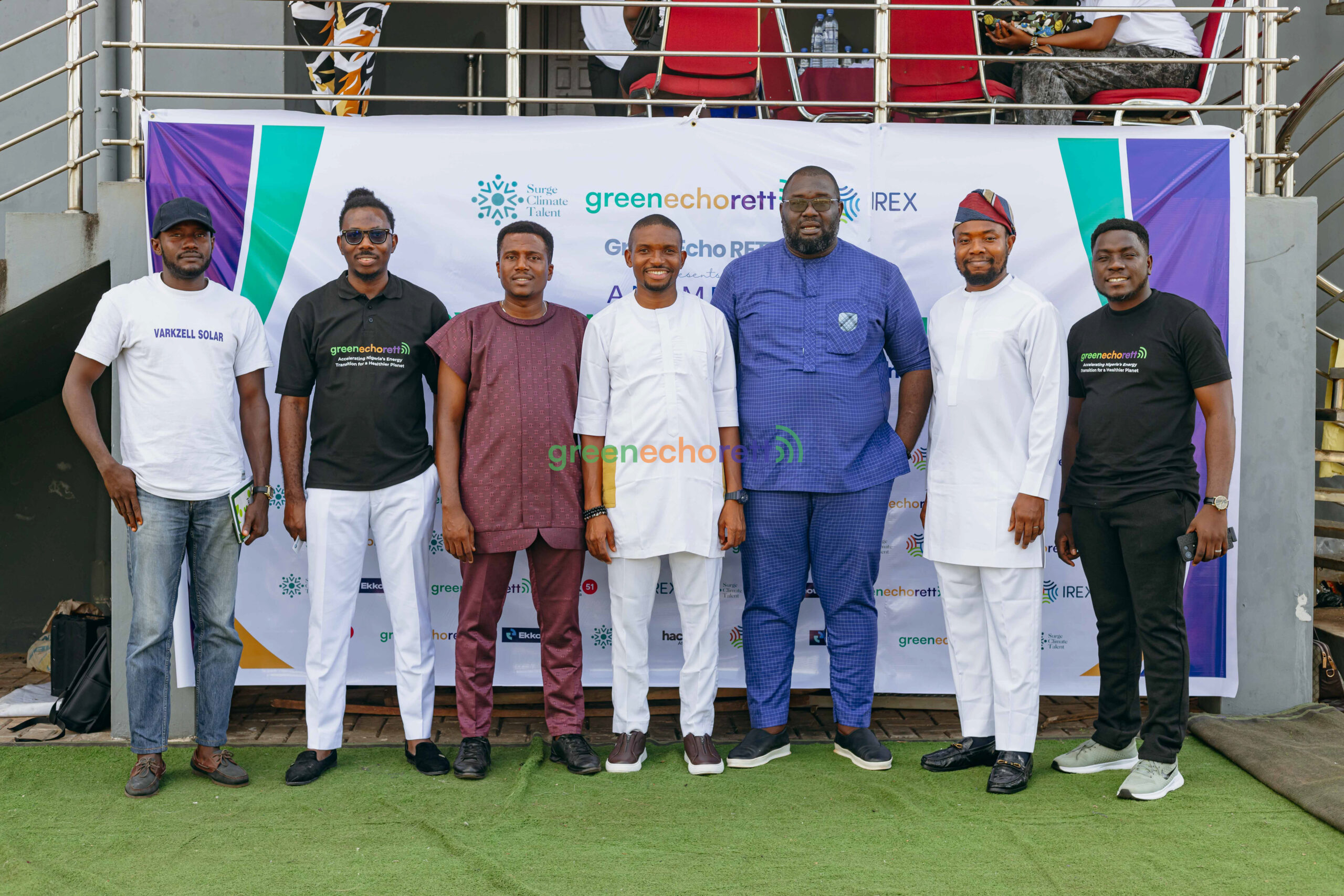
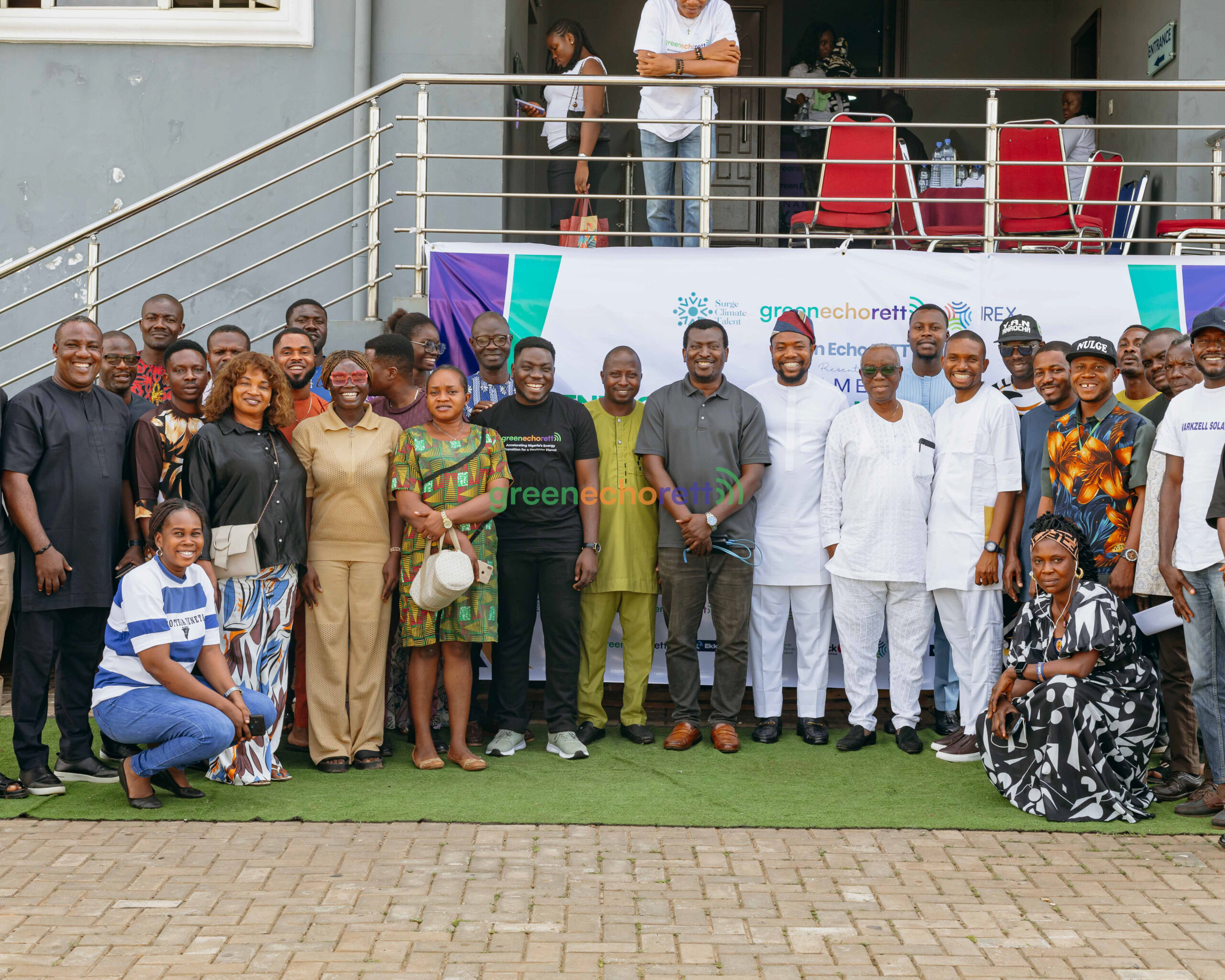
Closing Reflections
The convening closed with reflections from Engr. Ike, who urged stakeholders to embrace cleaner fuels and confirmed that gas pipelines are expanding as an industry booster and support for renewables.
As Anambra builds its clean energy future, the message was clear: the state is ready to lead — but the transition will require commitment, collaboration, and action.
